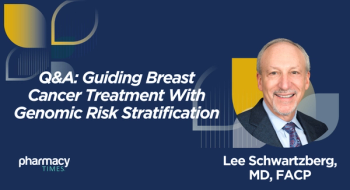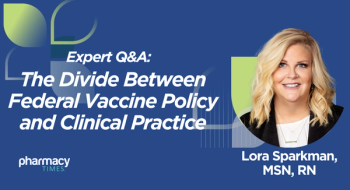
Conversations That Cross the Invisible Divide Between Oncology Practice, Industry May Help to Solve Challenges Facing Both
Annual NCODA Oncology Institute brings together leaders in industry to speak with leaders in clinical practice to discuss some of the commonalities and areas of opportunity to address challenges facing oncology professionals.
With the highly specialized nature of oncology today, clinical oncology professionals can remain focused in their niche area of expertise within clinical practice. As a result, conversations that cross the threshold between the challenges facing professionals in the clinic and those facing professionals in industry, who are working to understand and address unmet medical needs through therapy development and innovation, can less frequently occur. However, these types of conversations can be beneficial to better understand the perspective of each and advance the understanding of both, explained Michael Reff, RPh, MBA, Executive Director and Founder of NCODA, during an interview with Pharmacy Times.
To address this invisible barrier between oncology practice and industry, NCODA holds the annual
“As experts, we want to learn from one another to elevate patient care,” Reff said during his opening remarks at the 2023 NCODA Oncology Institute. “NCODA developed this innovative offering to lead the way in fostering relationships that will bring positive change. We look at all the stakeholders in the oncology ecosystem as integral for better patient care, and by working together we can accomplish this. That's the reason for this meeting.”
NCODA Oncology Institute chairs who developed the program for the event include professionals working in community oncology practice, such as Kathy Oubre, MS, Chief Executive Officer of Pontchartrain Cancer Center, and Stacey McCullough, PharmD, director of clinical and corporate partner strategy at NCODA and former senior vice president of pharmacy for Tennessee Oncology, alongside Oncology Institute partner chairs, such as Paul Bailey, senior director of Pfizer; Shannon Hussey, senior national director US market access at Sobi; and Matthew Schwarz, head of marketing—Venclexta at Abbvie.
According to Bailey, most of the conferences in the field of oncology tend to focus more on scientific information and the efficacy and safety of oncology therapies. However, he noted that discussions around how clinical oncology professionals figure out and assess the methods by which their teams will incorporate these therapies into their practices less frequently occur at these types of conferences; however, this type of information is valuable to industry, as they rarely have access to learning about these types of challenges facing oncology professionals in their day-to-day.
“This [event] helped to clarify for me that there needs to be a lot more conversations internally [in industry], about how some of the decision making happens [in clinical practice],” Bailey said in an interview with Pharmacy Times. “That's not only going to impact what we're doing as a company, but also how we're partnering with our providers.”
According to Oubre, recognizing some of the commonalities and areas of opportunity for addressing challenges facing industry and clinical oncology professionals can strengthen the relationships between them to better address topics that are relevant and important to both sides.
“For community oncology and drug manufacturers, we are better together than we are when working in our own silos,” Oubre said in an interview with Pharmacy Times. “By having these discussions, it allows industry partners insight into the way we think, what our pain points are, what places of commonality are, and what areas of opportunity may be available to partner together for the betterment of the patient, which is really why all of us do what we do.”
Oubre noted that at this event, attendees walked away with a sense of next steps for the future.
“I think we all walked away with some salient ‘what's next,’’ Oubre said in the interview. “In particular, we have top of mind the importance of addressing alternate funding programs and engaging our legislators on the Inflation Reduction Act, recognizing that not all of its elements are bad, but there definitely are some areas of concern, especially when we think through some unintended consequences that may have direct impact on our patients and their health care.”
Reference
Reff M. Welcome. Minneapolis, Minnesota: NCODA Oncology Institute; Aug 16, 2023.
Newsletter
Stay informed on drug updates, treatment guidelines, and pharmacy practice trends—subscribe to Pharmacy Times for weekly clinical insights.








































